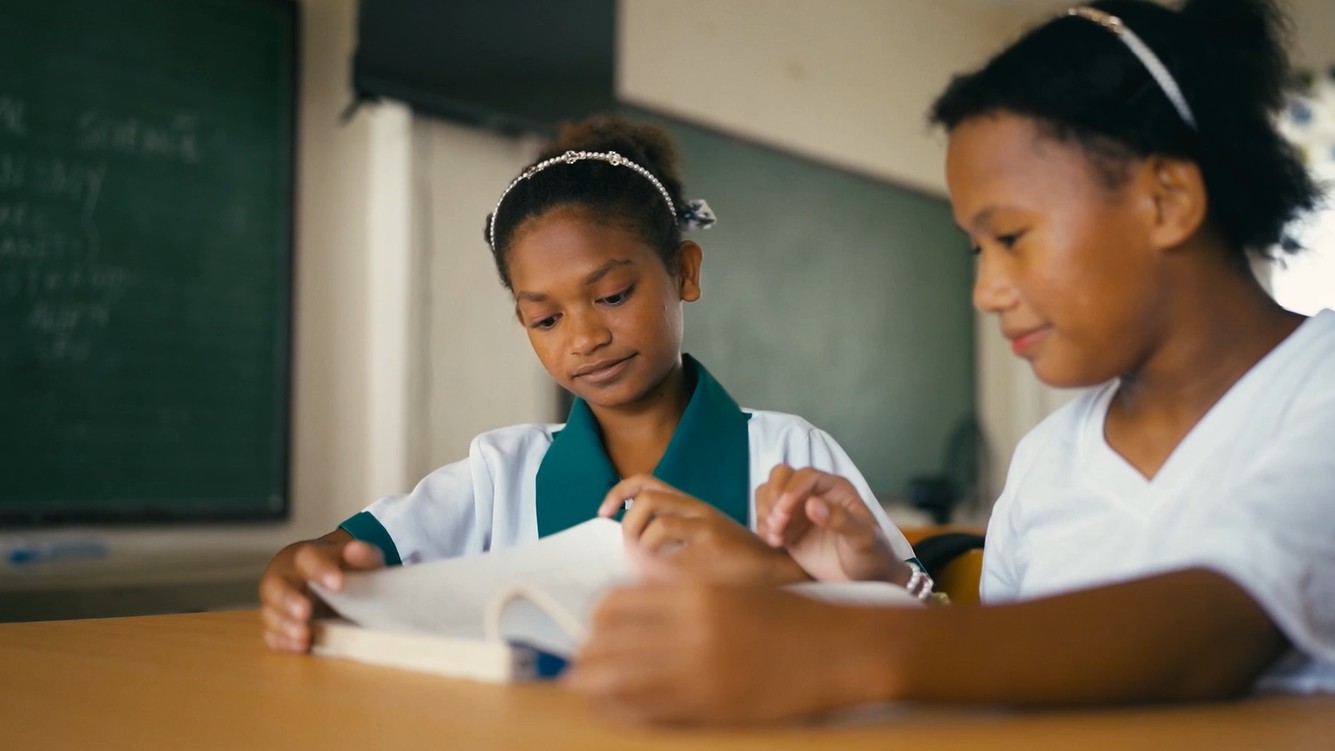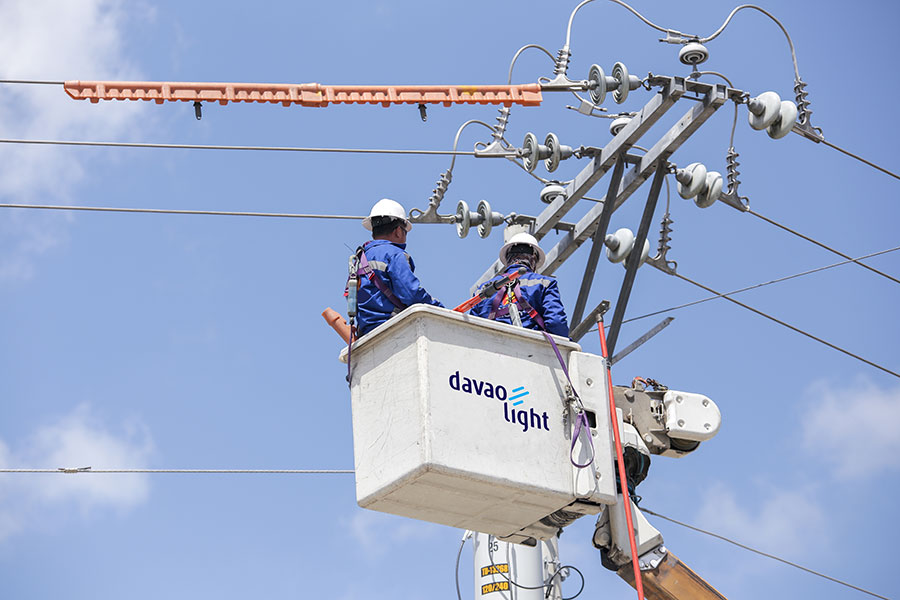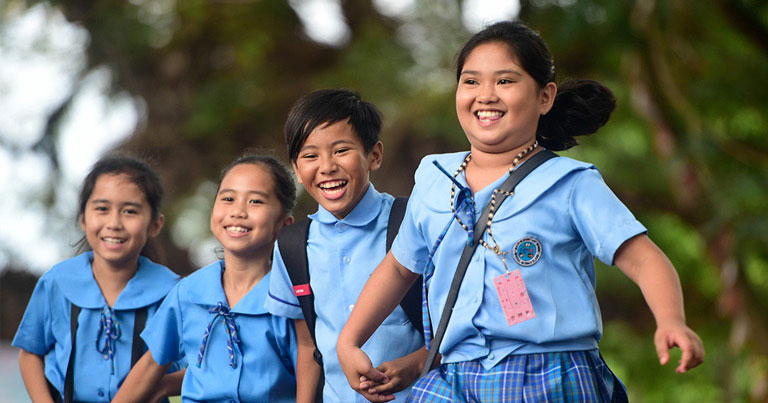Students in Bataan are able to thrive in a conducive learning environment thanks to the new classrooms made possible by the Cement Credits Program of the GMEC plant of AboitizPower, the local government of Bataan, and the offtakers of the fly ash.
The energy sector is undergoing a transformation, not just by shifting towards more renewable energy sources, but also by finding innovative ways to reduce waste and minimize the environmental footprint of traditional power sources. Ingenuity has transformed fly ash, a byproduct of coal power generation, into a valuable resource for construction and infrastructure development.
Fly ash is now widely used in cement and concrete production by helping enhance the durability of their final products and reduce the environmental impact of construction projects.
Recognizing this utilization, Aboitiz Power Corporation’s (AboitizPower) GNPower Mariveles Energy Center (GMEC) power plant in Bataan, partnered with cement manufacturing companies to upcycle its fly ash into sustainable building materials. This is part of its advocacy of implementing a circular economy approach to its operations. By doing so, AboitizPower helps reduce waste and contributes to a greener, more resource-efficient future in the electric power sector. This proves that even conventional energy sources can play a role in sustainable innovation.
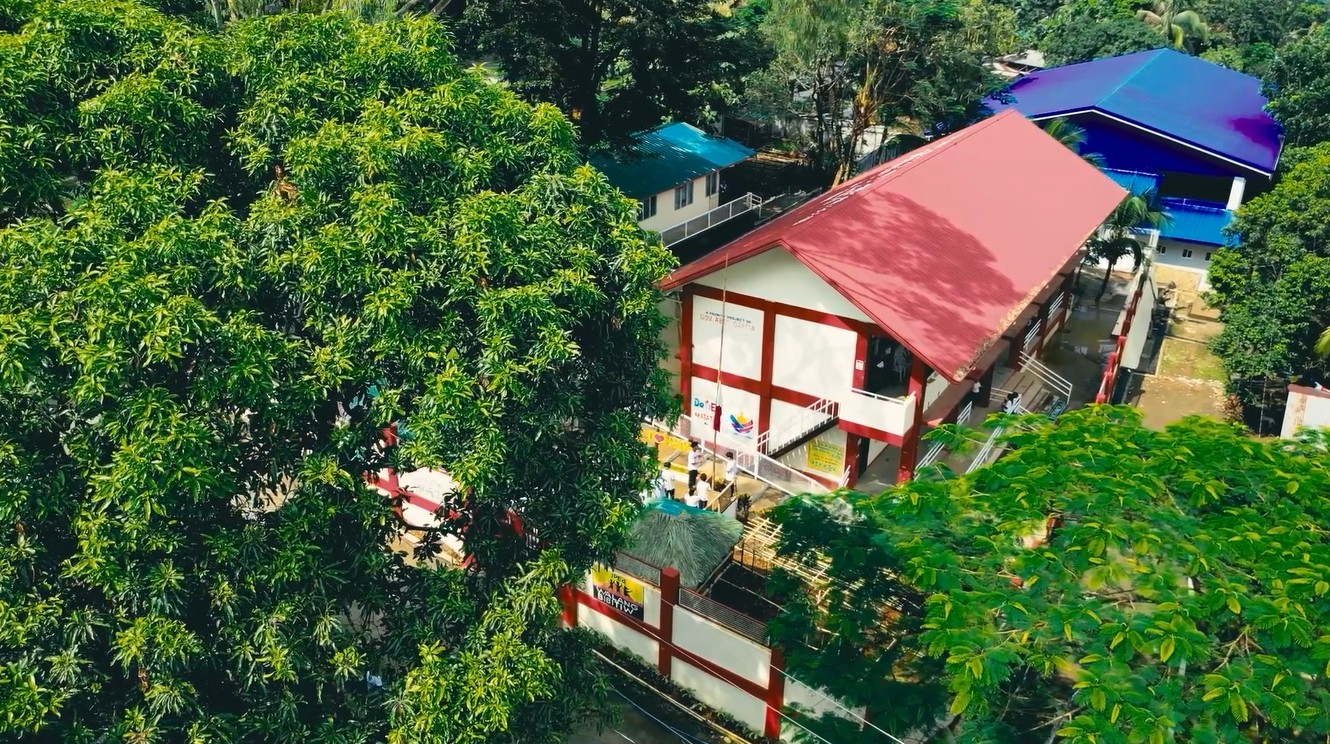
457 classrooms and counting. Bangkal High School in Abucay, Bataan (pictured) is among the 70 schools across the province’s 12 municipalities which has been completed with the support of the Cement Credits Program.
The Cement Credits Program was launched in 2012. It manages the sale, transport, and utilization of fly ash, ensuring the environmentally compliant handling and repurposing of the byproduct. The offtaker or purchaser of the fly ash is responsible for safe transport, processing, and use in cement manufacturing, while the Provincial Government of Bataan oversees final approval and prioritization, ensuring that the donated cement are used in projects that align with regional development goals and directly benefit local communities.
Through the Corporate Social Responsibility (CSR) initiatives of GMEC and with the help of its partners in upcycling fly ash, the program has donated more than 780,000 total cement bags which contributed to the construction of schools, daycare centers, multipurpose halls, healthcare centers, drainage systems, slope protections, and roads across Bataan.
The program has played a crucial role in uplifting the education sector by significantly improving school facilities. As of 2024, 457 classrooms in 70 schools across Bataan’s 12 municipalities have been completed, including facilities in Mariveles, Limay, Orion, Pilar, Balanga, Bagac, Morong, Abucay, Samal, Orani, Dinalupihan, and Hermosa.
Two of its most notable projects are the four-story, twelve-classroom school building at Morong National High School, completed in 2024, and the two-story, four-classroom school building at Bangkal High School, Abucay, completed in 2022. The program is also actively supporting the ongoing construction of a State University in Morong.
“The most rewarding part has been seeing the tangible impact on the communities. One of the students shared with us that [the new classroom] has improved their ability to focus on learning, thanks to the safer and more conducive learning environment,” said Joseph Paolo Mendoza, Reputation and Stakeholder Management Department Manager.
While education has been a primary focus, the Cement Credits Program has also made a lasting impact in other areas of community development. Fifty-five road concreting projects have been completed, improving accessibility and transportation in key areas.
Healthcare facilities have also been enhanced, with the construction and upgrading of seven health centers, a dialysis center in Mariveles, and an ongoing hospital project in Morong.
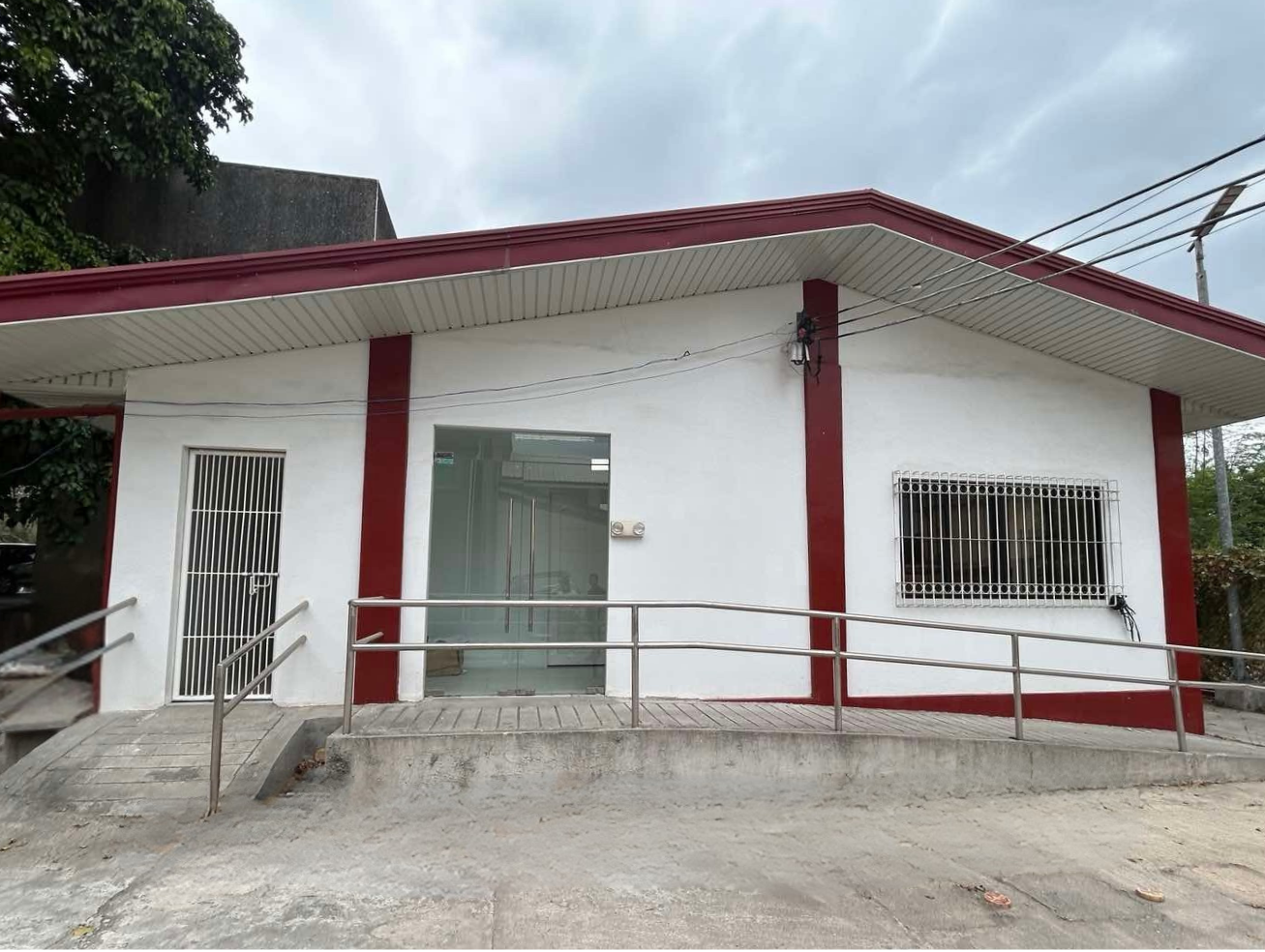
Rehabilitated dialysis center. This social infrastructure for the Mariveles District Hospital (pictured) is among the Cement Credit Program’s contributions to enhancing healthcare facilities in Bataan, which also include the upgrade of seven health centers and the construction of a hospital in Morong.
“As a responsible energy provider, AboitizPower and GMEC recognize the importance of contributing to the host communities we serve,” Mendoza explained. “Investing in education and local infrastructure is not only beneficial for the social development of the region but also strengthens our ties with local stakeholders, ensuring the long-term success of our operations.”
Fly ash is blended with clinker, an important ingredient in cement, where it reacts with lime and other components to enhance the strength and durability of the concrete. The cement manufacturing company ensures rigorous quality control, integrating fly ash into production while meeting international standards. This process not only maintains but also improves cement workability, durability, and resistance to chemical attacks, making it a high-quality, sustainable alternative to conventional cement.
“It is repurposed because it has beneficial properties for cement production, enhancing durability and strength while reducing environmental impact compared to traditional cement manufacturing,” Mendoza added.
The Cement Credits Program reflects AboitizPower’s advocacy for sustainability, community development, and nation-building. It also falls under the R pillar, or "Rehabilitate Social Infrastructure", of GMEC’s P.R.O.G.R.E.S.S framework, directly contributing to the long-term progress of Bataan.
“AboitizPower envisions itself as a long-term partner in the sustainable development of the communities around Mariveles,” Mendoza proudly shared. “Beyond providing energy, we aim to support community needs in education, healthcare, and infrastructure through innovative solutions like the Cement Credits Program. Our goal is to leave a lasting, positive impact on future generations.” By Jasmine Tuaño
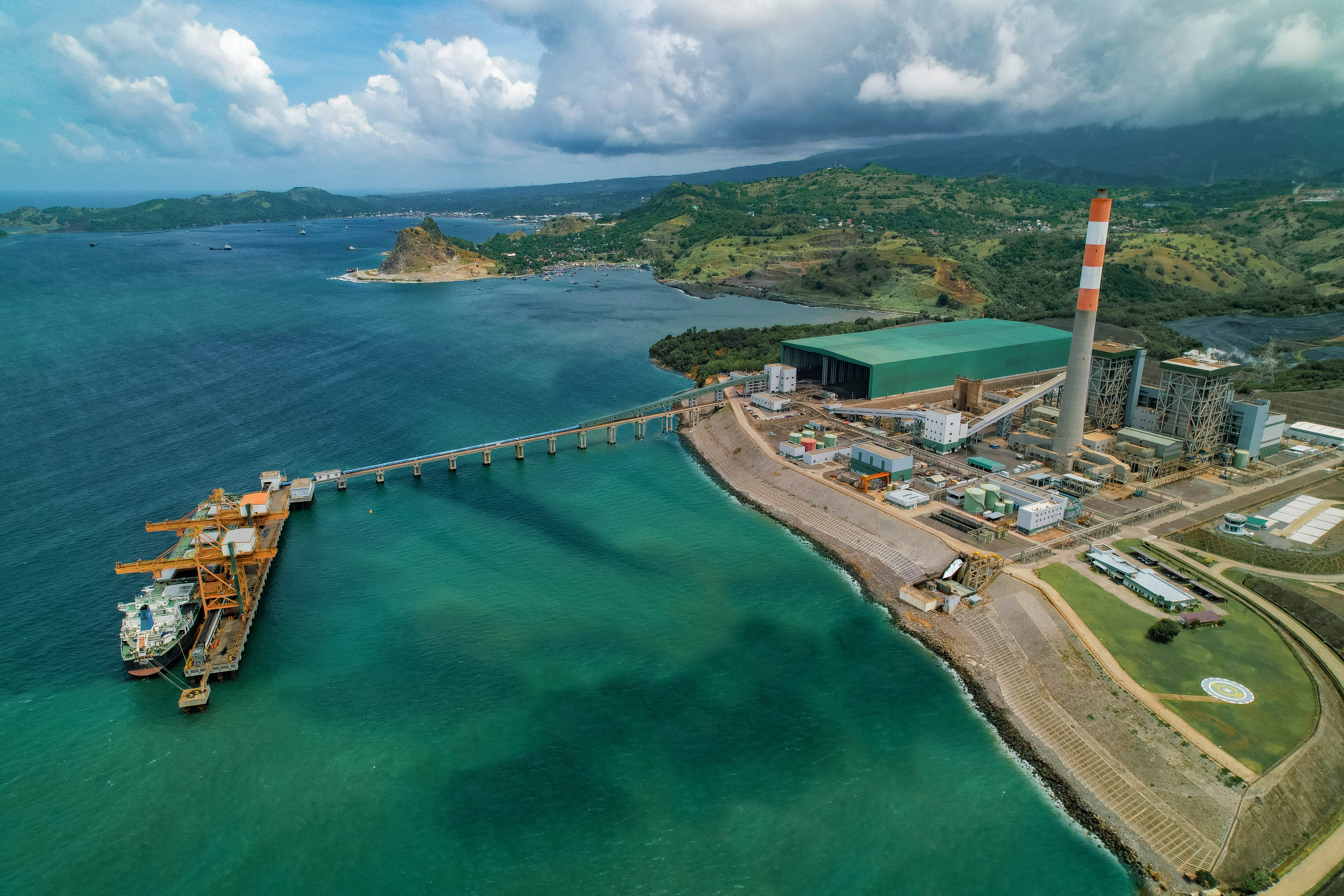
Powering Progress. An aerial view of the 2x325.8 MW (gross) GNPower Mariveles Energy Center (GMEC) coal-fired power plant in Bataan.
